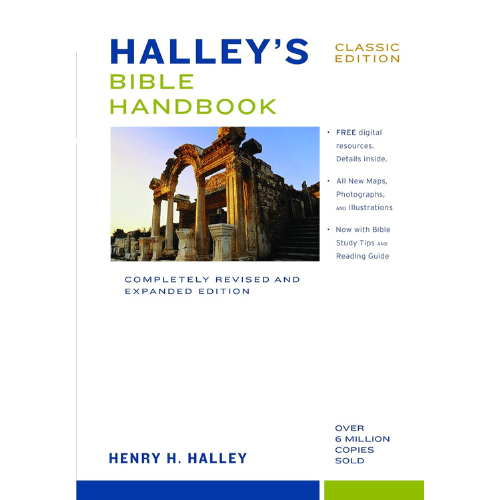Have you ever wondered how to find joy and unity in the face of life’s challenges? The Book of Philippians offers a profound answer through the Apostle Paul’s heartfelt letter to the church in Philippi. Written from a Roman prison, this epistle overflows with encouragement, demonstrating how faith can thrive even in adversity. Paul’s words remind us that true joy is rooted in Christ, not circumstances, and that unity and humility are essential for a thriving Christian community.
The Book of Philippians also challenges us to embrace a Christ-centered perspective, urging believers to live as citizens of heaven. Paul’s focus on humility, faith, and selfless love offers timeless lessons for our daily walk with God. Whether facing trials or celebrating victories, this letter encourages us to press on toward the ultimate goal—knowing and glorifying Christ. Today, as in Paul’s time, these messages resonate with believers seeking hope and guidance in a complex world.
Writer of the Book of Philippians
The Book of Philippians was authored by the Apostle Paul, one of the most influential figures in early Christianity. Paul wrote this letter during his imprisonment, likely in Rome, as he awaited trial (Phil. 1:13-14). Despite his chains, Paul’s unwavering faith and joy shine throughout the letter, offering a powerful testimony of hope in the midst of suffering.
Paul’s relationship with the Philippian church was uniquely affectionate. Philippi was the first European city where Paul established a Christian community during his second missionary journey (Acts 16:11-40). The Philippians supported Paul not only spiritually but also financially, standing by him in times of need (Phil. 4:15-18).
In the Book of Philippians, Paul’s love for this congregation is evident as he refers to them as his “joy and crown” (Phil. 4:1). His heartfelt tone and personal reflections highlight his deep bond with these believers, making the letter a profound encouragement to Christians then and now. Paul’s example of joy and faithfulness continues to inspire readers worldwide.
Date Written
The Book of Philippians was written around A.D. 60–62 during Paul’s first Roman imprisonment. This period marked a critical time in Paul’s ministry as he continued to advance the gospel despite being under house arrest (Phil. 1:12-14). Roman imprisonment allowed Paul a degree of freedom to write letters, receive visitors, and preach, which he used to encourage the early churches he had established.
The Book of Philippians reflects Paul’s unwavering faith and determination to spread the message of Christ, even in chains. The letter captures the tension between Paul’s physical confinement and his spiritual freedom, as he joyfully proclaims the advance of the gospel through his circumstances.
This timeline places Philippians among Paul’s “prison epistles,” alongside Ephesians, Colossians, and Philemon. Its context provides valuable insight into Paul’s perseverance and reliance on Christ during times of hardship. Despite being penned under trying conditions, the Book of Philippians radiates themes of joy, unity, and hope that continue to encourage believers in every generation.
To Whom Written
The Book of Philippians was addressed to the church in Philippi, a significant and vibrant congregation in the early Christian movement. Philippi, a Roman colony in Macedonia, held the distinction of being the first European city where Paul established a Christian church during his second missionary journey (Acts 16:11-40).
Paul’s letter begins with greetings to the church’s overseers, deacons, and all believers (Phil. 1:1). This inclusive opening highlights the importance of every member of the faith community, from leaders to laypeople, in living out the gospel. The Philippian church was particularly dear to the Apostle Paul, as they were steadfast in their partnership with him, providing financial support and encouragement even during his times of imprisonment (Phil. 4:15-16).
The Book of Philippians reveals the strength of this relationship, with Paul expressing deep affection and gratitude for their unwavering faith and generosity. He refers to them as his “partners in the gospel” (Phil. 1:5) and urges them to stand united in Christ, striving together for the faith (Phil. 1:27).
Purpose of the Book of Philippians
The Book of Philippians serves as a heartfelt letter of encouragement, gratitude, and instruction from the Apostle Paul to the believers in Philippi. One of its primary purposes is to inspire the church to remain joyful and steadfast in their faith, even in the face of trials. Paul emphasizes that true joy is found in Christ and encourages them to rejoice always, regardless of their circumstances (Phil. 4:4).
Another significant purpose of the Book of Philippians is to thank the Philippians for their faithful support and partnership in the gospel. They had generously provided for Paul during his ministry and imprisonment, demonstrating their commitment to the advancement of Christ’s message (Phil. 4:10-18).
Apostle Paul also addresses important concerns regarding unity within the church, urging believers to embody humility and selflessness modeled after Christ (Phil. 2:1-5). Additionally, he warns against the dangers of false teachers, encouraging the Philippians to remain grounded in their faith and to press on toward the goal of knowing Christ fully (Phil. 3:2-14).
Through its themes of joy, gratitude, unity, and perseverance, the Book of Philippians continues to encourage and guide believers in their walk with Christ.
Historical Context of the Book of Philippians
The Book of Philippians is deeply rooted in the historical context of Philippi, a prominent Roman colony in Macedonia. As a Roman colony, Philippi held a unique status, with its residents enjoying privileges like Roman citizenship, a structured military presence, and a cultural environment influenced heavily by Roman traditions. This diverse and influential city became a vital location for the spread of the gospel.
Paul founded the church in Philippi during his second missionary journey, marking it as the first Christian congregation in Europe (Acts 16:11-40). Notable events during the church’s establishment include the conversion of Lydia, a prominent businesswoman, and the dramatic salvation of the Philippian jailer and his household. These conversions reflect the early church’s diversity and the transforming power of the gospel.
Christians in Philippi faced societal challenges and persecution due to their faith. Living in a Roman-dominated city, they often encountered opposition for their allegiance to Christ rather than Caesar. This context underscores Paul’s emphasis on unity, steadfastness, and joy amid suffering in the Book of Philippians.
Understanding the historical backdrop of Philippi enriches the letter’s meaning, revealing its relevance to believers navigating challenges in any era.
Key Themes in the Book of Philippians
The Book of Philippians is rich in themes that offer timeless encouragement and practical guidance for Christian living. Paul’s letter radiates hope and faith, addressing the Philippians’ needs while calling them to a higher spiritual perspective.
Joy in the Lord, Regardless of Circumstances
A central theme of the Book of Philippians is the call to rejoice in the Lord, no matter the situation. The Apostle Paul, writing from prison, demonstrates an unshakable joy grounded in his relationship with Christ. He encourages believers to rejoice always (Phil. 4:4), reminding them that joy is not dependent on external conditions but on the presence of God in their lives. This theme challenges us to embrace joy even amid trials, knowing that God is in control.
Unity Through Humility and Christ-Like Love
Paul emphasizes unity among believers, urging them to consider others above themselves (Phil. 2:3-4). He highlights Christ’s humility as the ultimate example, describing Jesus’ willingness to become a servant for humanity’s sake (Phil. 2:5-8). This call to humility fosters harmony within the church and reflects Christ’s love to the world.
The Centrality of Christ
The Book of Philippians centers on the surpassing worth of knowing Christ. Paul declares that everything else pales in comparison to the joy of a relationship with Jesus (Phil. 3:8). He encourages believers to press on toward their heavenly goal, relying on Christ for strength and salvation (Phil. 3:12-14). This theme highlights the transforming power of prioritizing Christ above all else.
Living as Citizens of Heaven
Paul reminds the Philippians that their true citizenship lies in heaven (Phil. 3:20). This perspective calls believers to live in a manner worthy of the gospel, reflecting God’s kingdom values in their daily lives. It’s a powerful encouragement to maintain focus on eternal truths rather than temporary worldly concerns.
The Book of Philippians calls us to a life of joy, unity, and Christ-centered living. By embracing humility, prioritizing our relationship with Christ, and keeping our heavenly citizenship in view, we can experience the transforming power of the gospel. These themes resonate as deeply today as they did in Paul’s time, offering guidance and hope to believers everywhere.
Major Events/Stories in the Book of Philippians
The Book of Philippians weaves together profound theological truths and personal reflections, making it one of the most heartfelt and impactful epistles in the New Testament. Paul’s letter highlights key events and messages that inspire believers to deepen their faith and live for Christ.
Paul’s Reflections on His Imprisonment
In the opening chapter, Paul shares his reflections on being imprisoned, revealing a perspective of faith and optimism. Instead of lamenting his chains, Paul explains how his imprisonment has served to advance the gospel (Phil. 1:12-14). His unwavering trust in God inspires courage among believers, encouraging them to speak the Word fearlessly. This passage highlights Paul’s belief that God’s purposes can prevail even in the most challenging circumstances.
The Christ Hymn
One of the most theologically rich sections of the Book of Philippians is the Christ Hymn (Phil. 2:5-11). This poetic passage describes Jesus’ humility, as He took on human form and became obedient to death on the cross. It then exalts Christ’s ultimate triumph as God exalted Him above all. This hymn serves as a profound model of humility, urging believers to emulate Christ’s selflessness and love.
Paul’s Personal Testimony
In Philippians 3:7-14, Paul shares his personal testimony, describing his singular focus on knowing Christ and striving toward the goal of eternal life. He considers all worldly achievements as loss compared to the surpassing worth of knowing Jesus. His words challenge believers to adopt a mindset of relentless pursuit of their relationship with Christ, pressing on toward the heavenly prize.
Acknowledgment of the Philippians’ Generosity
Paul concludes the Book of Philippians with heartfelt gratitude for the church’s financial support (Phil. 4:15-18). The Philippians were among the few congregations that consistently partnered with Paul in his ministry. He commends their generosity, viewing it as an offering pleasing to God, and assures them that God will supply all their needs. This acknowledgment underscores the importance of partnership and stewardship within the Christian community.
The major events and stories in the Book of Philippians offer timeless lessons of faith, humility, perseverance, and generosity. From Paul’s reflections on his imprisonment to the Christ Hymn and his personal testimony, these passages inspire believers to live boldly for Christ, demonstrating faith in action.
Halley’s Bible Handbook, Classic Edition
The bestselling Bible handbook of all time with millions of copies sold, the Halley’s Bible Handbook makes the Bible’s wisdom and message accessible to everyone.
Theological Contributions of the Book of Philippians
The Book of Philippians offers a profound theological contribution through the Christ Hymn (Phil. 2:6-11). This passage portrays Jesus as the ultimate example of humility, willingly leaving His divine status to take on human form and endure death on the cross. His exaltation by God highlights the reward of selfless obedience and serves as a model for believers to adopt a servant-hearted attitude in their relationships with others.
Rejoicing in Suffering
Paul introduces the doctrine of rejoicing in suffering, a radical concept in the Book of Philippians (Phil. 1:29). He teaches that suffering for Christ is not merely a burden but a privilege that testifies to the believer’s faith and trust in God. This perspective transforms trials into opportunities for spiritual growth and witness, encouraging believers to persevere with joy.
Christian Maturity and Pressing On
Paul’s vision of Christian maturity, outlined in Philippians 3:12-16, emphasizes continual growth in faith. He encourages believers to press on toward the heavenly goal, setting aside past failures and focusing on their ultimate prize in Christ. This forward-looking mindset underscores the importance of perseverance and the pursuit of spiritual excellence.
These theological insights make the Book of Philippians a cornerstone for Christian living.
Special Considerations in the Book of Philippians
The Book of Philippians stands out for its deeply personal tone, reflecting Paul’s close bond with the church in Philippi. Unlike many of his other letters, this epistle is not primarily corrective but filled with affection and gratitude. Paul’s heartfelt words reveal his profound love for the Philippian believers, whom he refers to as his “joy and crown” (Phil. 4:1).
This letter also provides practical guidance for Christian living, especially in the face of persecution. Writing from imprisonment, Paul encourages believers to remain steadfast in their faith, rejoicing even in trials (Phil. 1:12-14). His example inspires Christians to maintain a Christ-centered perspective, finding strength in their relationship with the Lord despite external challenges.
Additionally, the Book of Philippians highlights the joy and value of gospel partnership. Paul acknowledges the Philippians’ sacrificial giving, commending their financial support for his ministry (Phil. 4:15-18). Their generosity serves as a model for believers, demonstrating how material resources can advance God’s work.
These special considerations make the Book of Philippians a uniquely encouraging and practical letter, offering timeless lessons on joy, perseverance, and the power of unity in the gospel. Its personal and uplifting nature continues to inspire believers worldwide.
Final Thoughts on the Book of Philippians
The Book of Philippians is a powerful call to joyful, Christ-centered living that speaks directly to the heart of every believer. Through his heartfelt words, Paul reminds us that true joy comes not from circumstances but from an unshakable relationship with Christ. His message encourages us to remain steadfast in faith, pressing on toward the eternal prize, even in the face of trials.
Paul’s emphasis on humility, unity, and sacrificial love offers practical guidance for living as citizens of heaven. The Christ Hymn stands as a timeless example of Jesus’ humility and exaltation, urging us to follow His example in our relationships and daily lives.
The Book of Philippians also highlights the transforming power of gospel partnership and generosity, encouraging believers to work together for the advancement of God’s kingdom. Its themes of perseverance, joy, and hope continue to resonate with those facing challenges, offering a source of encouragement and strength.
Ultimately, this letter serves as a timeless reminder to focus on Christ—the source of our unity, strength, and joy—and to live with a heavenly perspective that inspires faith and action in every season of life.
Frequently Asked Questions (FAQ) about the Book of Philippians
1. What is the main theme of the Book of Philippians? The primary theme of the Book of Philippians is joy in the Lord, regardless of circumstances. Paul encourages believers to rejoice always, find unity through humility, and focus on Christ as the ultimate source of strength and salvation.
2. Why did Paul write the Book of Philippians? Paul wrote the Book of Philippians to encourage the Philippian church to remain steadfast and joyful in their faith, to thank them for their generosity and partnership in the gospel, and to address concerns about unity and the dangers of false teachers.
3. Where was Paul when he wrote the Book of Philippians? Paul wrote the Book of Philippians during his first Roman imprisonment, around A.D. 60–62. Despite being in chains, he used this time to encourage the church and advance the gospel.
4. What makes the Book of Philippians unique compared to Paul’s other letters? The Book of Philippians is deeply personal and filled with gratitude. Unlike some of Paul’s other letters, it does not focus on correcting major doctrinal errors but emphasizes encouragement, unity, and joy.
5. How does the Book of Philippians apply to modern believers? The Book of Philippians offers timeless lessons on finding joy in Christ, maintaining unity, and living faithfully amidst challenges. Its teachings inspire believers to focus on their heavenly citizenship and press on toward spiritual maturity.





